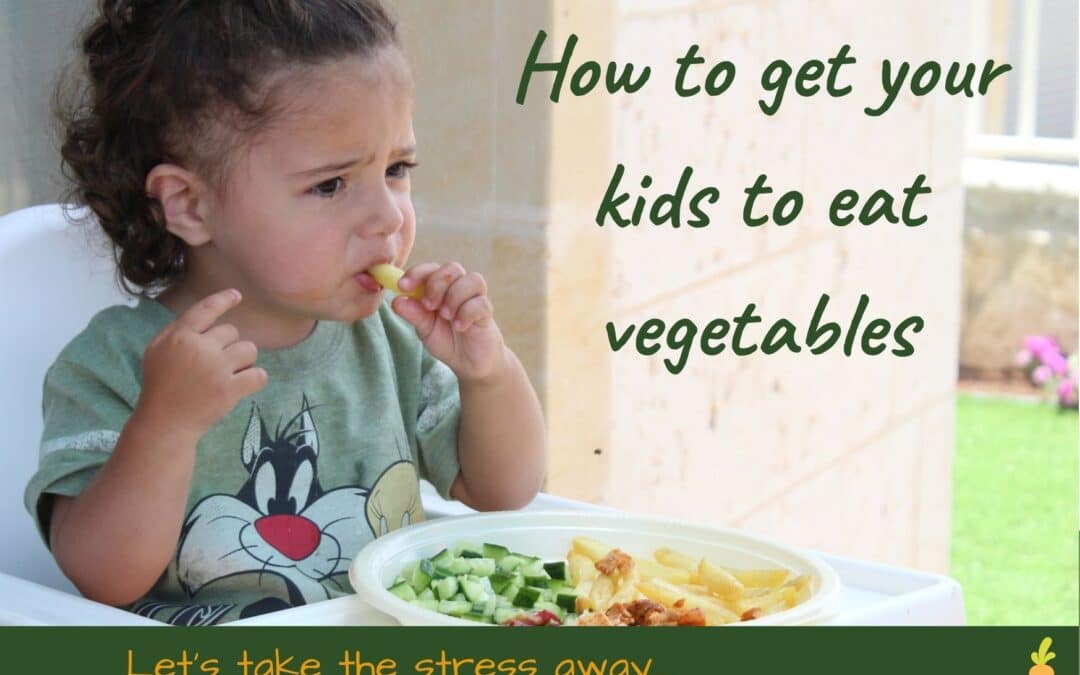Dinner time comes around, you’ve spent ages prepping something to feed your kids, and then they suddenly announce that they don’t like that any more (or never liked it in the first place even though they liked it yesterday!). Cue frustration, tantrums and general stress. How can kids make mealtimes so stressful and how do you get your kids to eat vegetables?! Seriously it really can be one of the most soul destroying areas of being a parent.
We seemed to get this bit right – here’s everything I’ve learned and applied to get veggie loving kids…
Why won’t kids eat vegetables?
Children are more ‘primitive’ in their behaviours and therefore more prone to listening to their evolutionary cues.
Avioding toxic foods and choosing energy dense ones
As foragers, foods which were off would often taste bitter, as would those with toxins, so they developed more of an aversion to bitter tastes. Children actually have more taste buds that detect this, which we lose when we’re older. Sweeter foods were also generally the more energy rich, and therefore favoured, which is why our children seem programmed to have a sweet tooth, no matter what we do!
There’s also a stage that children go through, around 2 years old (often coinciding with their discovery that they can say no to foods), when they start to develop a fear of foods they think are unsafe. This is possibly linked to them starting to forage for themselves and therefore needing to be sure that they were eating things that they should. They form ideas of what safe foods look and taste like, start to scrutinise what’s put in front of them and need to see each food a number of times before they can learn to accept them.
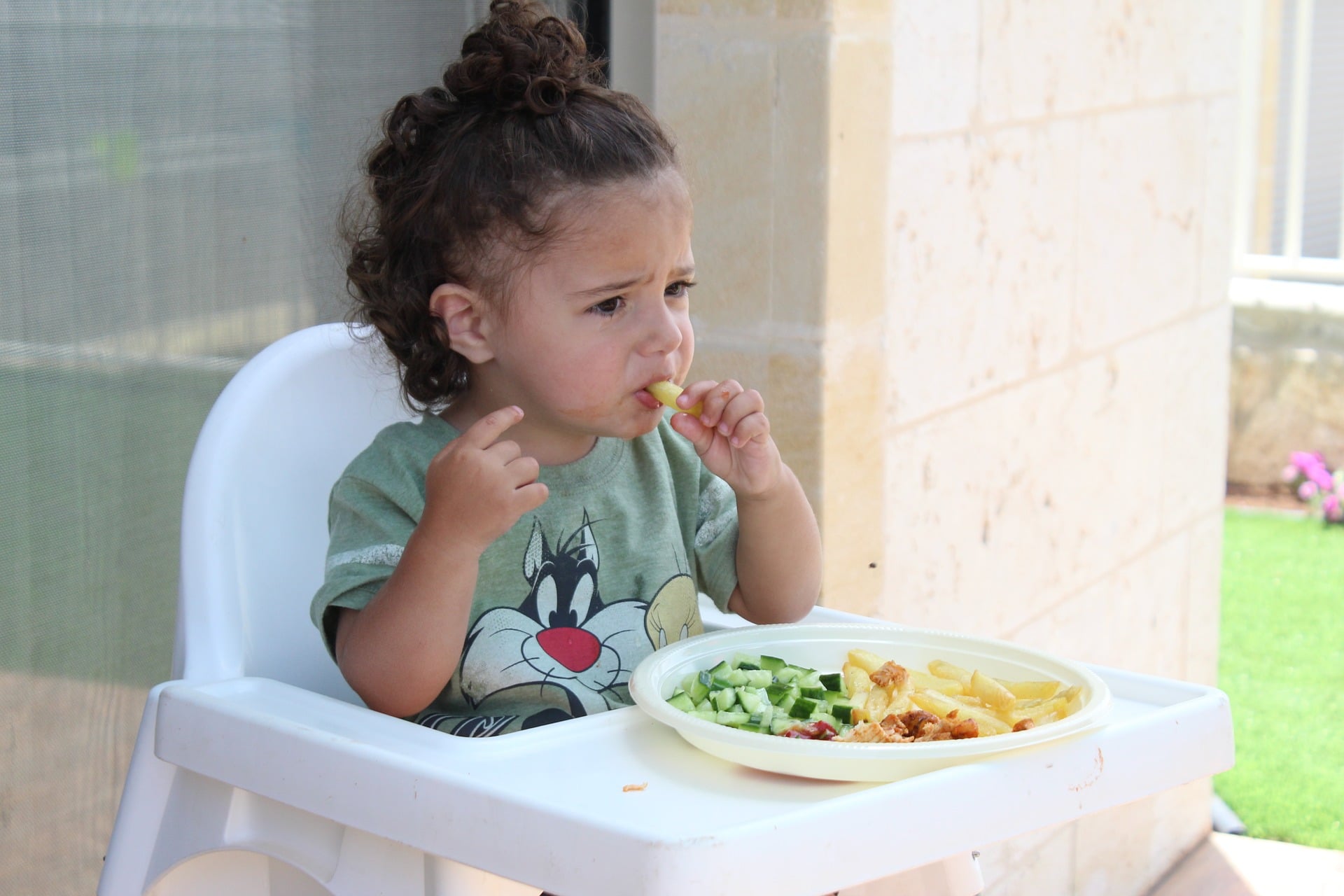
This combination of not liking foods with different shapes, textures or flavours, and avoiding anything at all bitter means that vegetables are often hard to get in. Bland plain processed and sweetened foods seem much safer.
Exerting their will
It’s important to understand too that most children go through a stage when they realise that they can exert their will over their own food. In a world that’s pretty much out of their control, what goes in their mouth is up to them. A pretty exciting realisation!
What this can mean is that around 18-24 months, most children will start to refuse most foods, even stopping eating foods they loved previously. This can seem worrying as their diet becomes very limited, but this phase will end, especially if you don’t fight them and try and seize their little bit of control. Let them make choices – children are actually often quite sensible when their options are explained to them calmly and logically!
Some children seem to never come out of this, possibly because of our own behaviours, or because there is such a wide availability of sweet, non bitter and plain foods that they never seem to need to expand their horizons further.
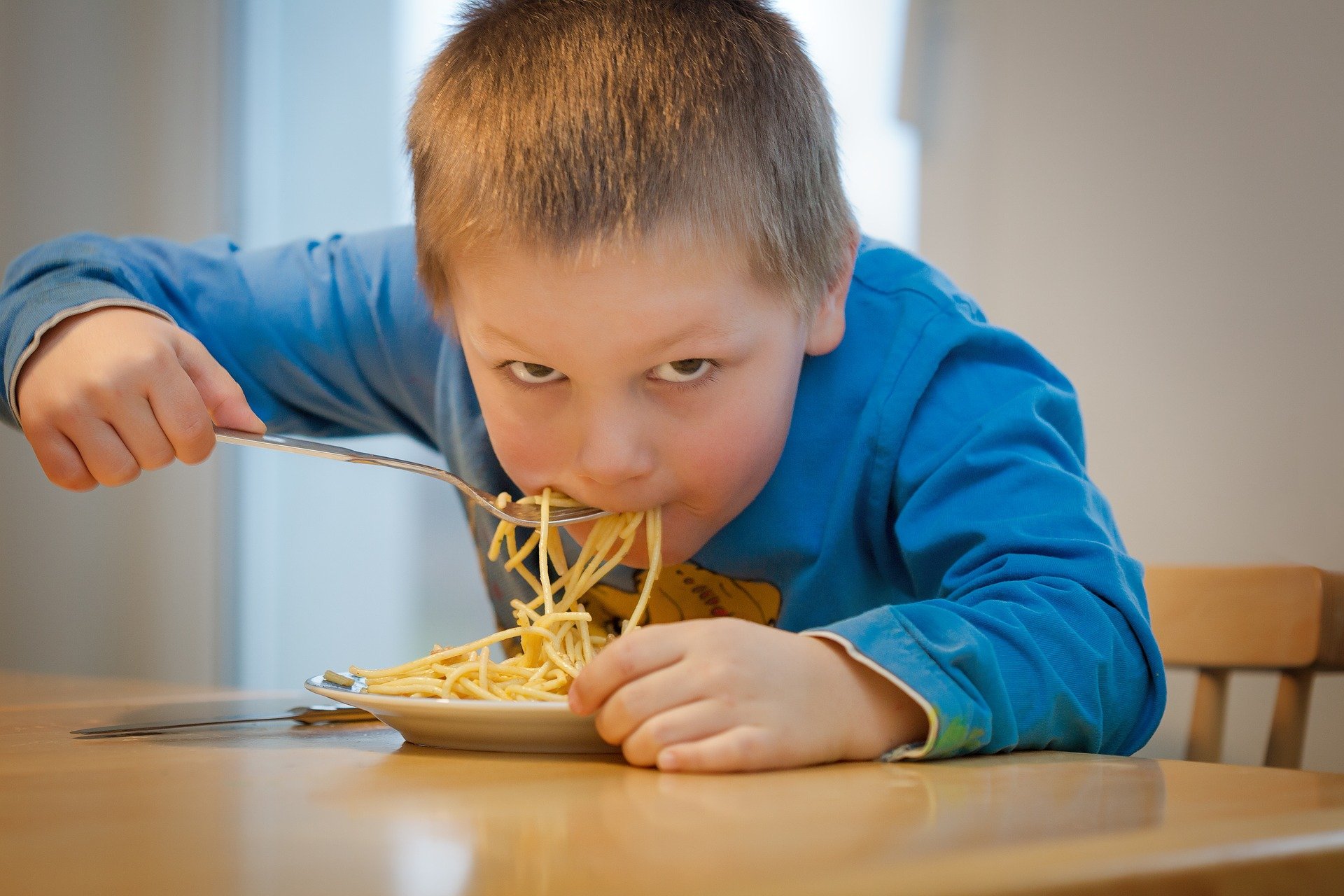
Unfortunately, some children end up being fussy at the table as a way of getting attention. This is becoming more common as our lives get busier. Have you ever spent most of a mealtime trying to coax one child to eat whilst the other one gets pretty much ignored for eating their dinner? Think about what you’re teaching your children, especially when you think that children are always craving their parent’s attention. Give it positively to the one doing what you want! (yes this takes practice and a calm head).
Why is it important that children eat vegetables?
Healthy growth
Fruits and vegetables are essential for healthy growth and development and immune system function.
The brain requires the right nutrients to be effective
Ensuring your child eats well can really help them to have the energy to concentrate and learn throughout the day, improving behaviour and grades and elevating mood. So if you’re feeding your kids healthy foods and they are getting what they need, you’ll have an easier life too as their behaviour will be more manageable… quite a few childhood disorders like ADHD have been linked to diet.
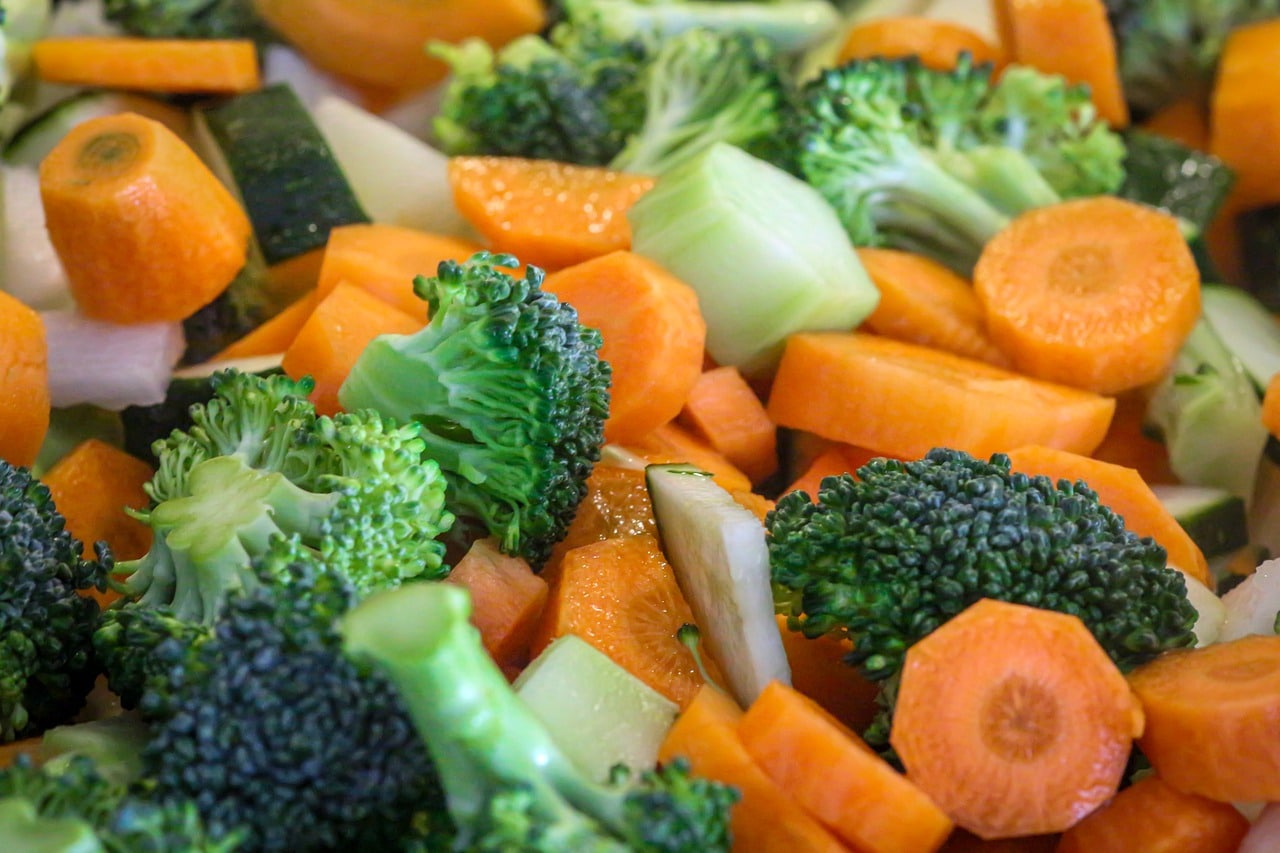
Energy maintenance
Some other more immediate benefits that you’ll find are that with the correct vitamins and minerals their energy levels are likely to be more balanced, which will make it easier for them to control their emotions. We’re all cranky when we’re tired right!
Epigenetics
I’m not going to get into the science too much, but epigenetics is important. 95% of our genes are not set when we’re born and can be ‘turned on and off’ based on the chemicals that are in our bodies. A lot of these are set during childhood, which means that by the time we’re adults, we can be prone to diseases like cancer and there’s very little we can do about it once we’re adults. I don’t say this to freak you out, I say it to motivate you. When you’re in that stressful, screaming, tantrum moment, remember WHY it’s so important to do this so you can stay strong in that moment and do what’s best for them, not what every part of your body is begging you to do.

How can we get our children to eat vegetables?
I was one of those children who refused to eat most things and drove my parents mad. It didn’t help that I had ‘perennial rhinitis’ which wasn’t diagnosed until I was 12. Basically, my nose was permanently blocked until I was 12 and got on medication, which meant I had to stop to breathe whilst eating and so was really slow. Mealtimes were stressful as everyone else finished before me and would watch me eating. By my teenage years my parents had resigned themselves to my fate and no longer really tried to expand my diet from beige foods. Seriously, I had one option for lunch, (white bread baguette with peanut butter).
So when I had children of my own I knew that I didn’t want this for them. I did the following things, and I’ve ended up with two children (9 & 10) who eat pretty much anything I put in front of them, will try any foods and eat things that they don’t really like.
So here’s what we did, in the hope that it can help you too to have kids who love veg!
This isn’t just theory, it’s worked on my two!
You may need to try a variety of these, but I think the main principle is to stay calm at mealtimes and don’t make it a big deal. Most of the fussiness comes from fear, and we rarely overcome phobias by being shouted at and forced. Gentle, supportive encouragement and positive reinforcement is often much more effective.

Start young
If your kids are under 18 months old you’ve got a good opportunity to set the standard early on and apply the principles below to head off issues. At this age they’ll be much more receptive to anything you put in place, like there being no alternatives if they don’t eat it, and no meaning no.
When my son first started feeding himself, so around 18 months, he started to push his bowl away if he didn’t really like it. We’d simply tell him that there was nothing else, and go back to our conversations. He’d sit for about 30 seconds, waiting for a reaction, watching us eat, and then pull the bowl back and polish it off because he was hungry and he KNEW that there was nothing else coming.
Mealtimes should be a calm environment
Nothing good comes of you or your children getting stressed at meal times. Trying new foods requires confidence and a feeling of security, which does not come from shouting.
Shift your mindset. If your child chooses not to eat their dinner, then that’s their decision. They are not going to starve themselves and it’s not a personal insult to your cooking skills. Explain to them calmly that that is their only option for food and there is nothing else and turn your attention elsewhere. Focus on the children who are eating their dinner or on your partner. No drama.
Understand the psychology and the effect of your actions
This involves being a bit mindful and trying not to just react (keeping things calm above will help you with this).
As discussed above, children are programmed to have a fear of new foods. We can help them to get over this by encouraging them and rewarding them with positivity for trusting us and trying something. If they see us and others eat it they are also more likely to see it as safe.
Making a fuss and turning new foods into a stressful situation can exacerbate the fear of new foods. Remember that it’s not your child just being fussy, pretty much every child goes through this and it’s a natural part of development.
Shift your mindset. If your child chooses not to eat their dinner, then that’s their decision. Explain to them calmly that the food in front of them is their only option and there is nothing else and turn the attention back to another child or to a conversation.
Only have foods on display that are ok for them to eat
Try not to have cakes or a cookie jar out on the side – they’re more likely to ask for it! Put some fruit out instead and they might just surprise you by asking for that instead!

Agree what your approach as parents is – get on the same page!
This has been so important for us as parents. My husband and I have a similar idea for what we expect from the kids and so we both react in the same way which is very lucky. This creates consistency for the kids. They know what to expect so they know what the consequences are.
Be consistent and make sure No means No!
I see so many parents do this everywhere. They say no, and then are giving in the next minute because their child is screaming so much. This is a really important one to get sorted early. Be strong. Once you say no you don’t go back on it, no amount of screaming can make you.
If your child knows that you mean what you say, they won’t scream for long as they know it won’t get them anywhere (this one is so much easier if you do it from the start!)
Don’t resort to bribery, coercion, persuasion, punishment or blackmail
It’s tempting to threaten our children with punishment if they don’t eat, or to bribe them with rewards like pudding for just a few more mouthfuls.
Be careful with this, punishment enforces that foods they don’t like are scary. Offering to make things better after with pudding reinforces the idea that there are foods which are bad or not very nice, and yummy foods. It can also start a ‘I should get cake or chocolate if I’m good’ sort of mindset and we all know where that gets us in adulthood…
Even coaxing and putting pressure on them to eat can have negative effects, even if you’re not being negative with it.
Let them join in with some dinner prep, or teach them where that food comes from
Sometimes, if a child has had the chance to get more familiar with a food, and has helped prepare it themselves, they are more likely to eat it.
Educating them and watching videos about how it’s grown and where it comes from can help too.
It’s all about increasing familiarity with it so it seems safer.
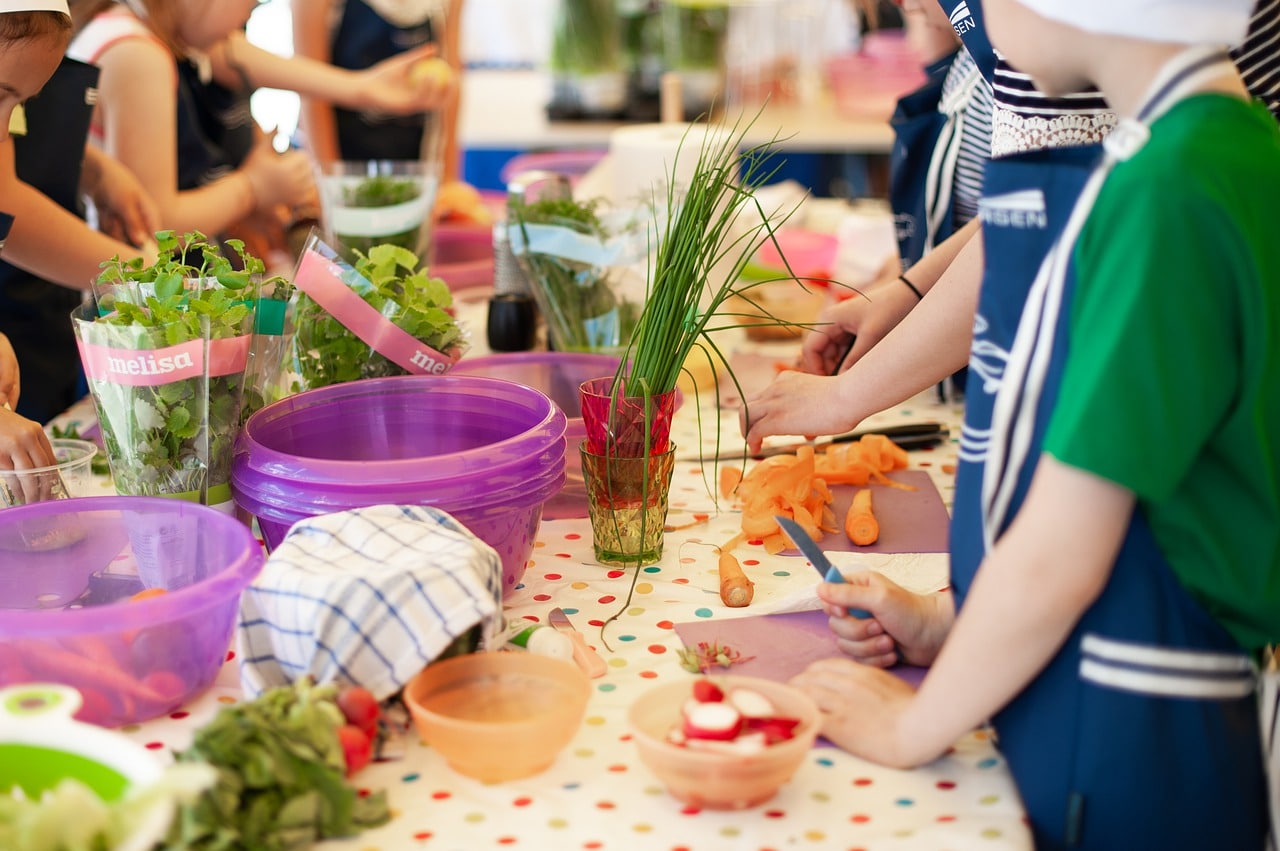
Give them a small portion
The sight of a whole plateful of foods your child is not sure about can be enough to put them off even trying. So if it’s something that you’re not really expecting them to eat, only make or serve them a small portion. They’re more likely to give it a go. And if they love it and want more food, you can serve more or follow up with some fruit and yoghurt or wholemeal toast.
Make sure they’re hungry
If you have kids who have a tendency to be fussy, or know that the dinner is not one they are going to love, make sure they’re hungry for it! So don’t let them snack in the hour or so before dinner (or eat anything substantial for a few hours before).
Use positive reinforcement
Acknowledge your children when they try something they don’t like, use positive reinforcement rather than negative.
Keep presenting foods
Yes it’s disheartening to keep having the food you’ve made turned down. But keep trying them, it can take up to 20 tries before they start to like it. Literally one small piece each time.
It’s also worth trying to offer them in different forms, using different cooking methods i.e. steamed, grated, raw for carrots.

Encourage them to know when they’re full
Many of us were brought up to clear our plates as the polite thing to do, drummed into us from our parents rationing days. But now portion sizes are often much larger than they need to be (especially when eating out) and we as a generation have no idea how to stop!
Encourage your child to eat until they are full, not until their plate is empty.
They may say they’re full to avoid eating the rest. It’s ok to test this, we usually say something like. ‘If you’re sure. There’s nothing else until breakfast so eat a bit more if you think you’ll get hungry before bed.’ Sometimes they’ll decide to stick a bit more in. Other times they’re genuinely full. That’s ok.
Stay strong through the fussy stage
This can be a really hard time as they change their mind on a whim and often resort to eating very little. It’s hard, but try to get as much nutrition in them as you know they’ll eat, stay calm and make mealtimes enjoyable, keep offering new foods so they can see them, smell them and hopefully taste a few. If they see you eating them too, when they break out of it these foods won’t be so unfamiliar to them.
Let them explore their food
There’s a general feeling that we shouldn’t play with our food, but it can help kids to make mealtimes fun and to get more familiar with a food by moving it around.
This is really effective for children who have a fear of new foods. For attention seekers, this is just another way to get attention and shouldn’t be encouraged.
Fruit is really good for cutting into fun shapes and using the colours to make scenes.
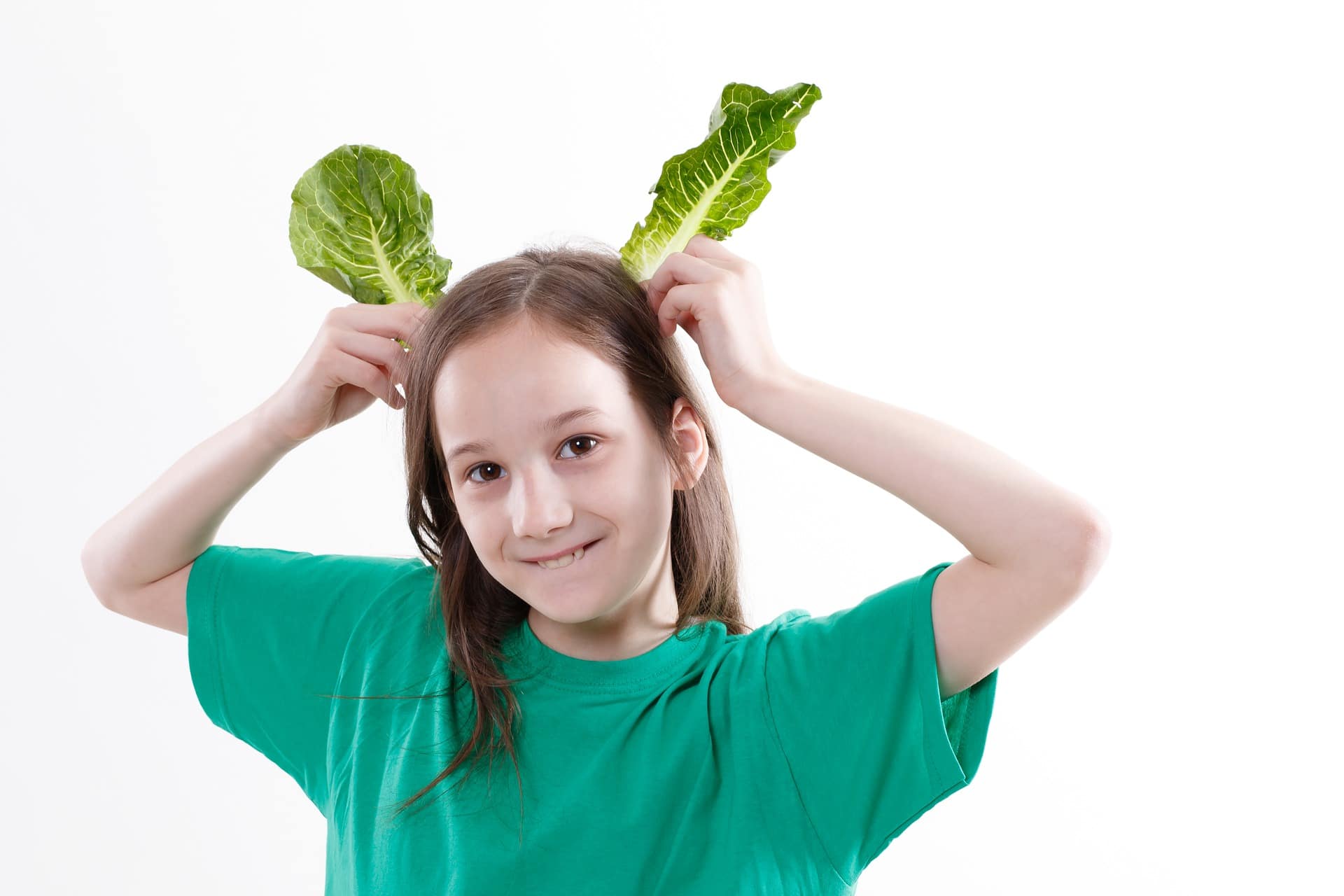
Let them go hungry
This sounds harsh! But the reality is that they won’t starve themselves. If you know that they’ve had breakfast and another meal during the day, they are not going to starve. If they’re hungry later or feel tired, explain that what they’re feeling is because they didn’t eat their dinner. Let them link the hunger to not eating so that they can learnt to make their own choices.
My son chose to just eat up every time once he realised he’d go hungry – he always hated that!
Help them understand why different foods are good for them
We found our ‘Little Soldiers’ analogy really helpful with my son. We explained his immune system as being like a little army, which fights off illness. Vegetables and fruits were what his army needed to be strong and was their ammunition, whereas the germs were armed and fed by high sugar foods.
He loved this idea and was happy to help his soldiers win the battle, especially when he was feeling a bit ill. We later extended it a little to explain that fruits and vegetables gave his body the energy he needed to win his football game, or fun around in the playground all day faster than his friends (yes, he’s competitive!).
Even just explaining that carrots are really good for your eyes, or that avocado will keep them full for a long time, or help their brain to work well is helpful. Yes, this does involve educating yourself on the basics of why foods are good for you, but that can’t be a bad thing! We should all understand what it is we are eating and what it will do for our bodies, this helps us make better choices.
There are many games and apps out there now that can help kids learn about healthy eating. Give one a try!
Have at least a couple of family mealtimes every week and lead by example
This should be pretty obvious, but I’ll say it anyway, you must be eating fruits and veggies yourself and have a good relationship with food or your children are unlikely to develop this themselves…
If you are eating together as a family, with a positive attitude to the food (don’t allow any negative comments about the meal at the dinner time from your partner), then food fears should be abated and you’re allowing them a much more supportive environment to try new things.

Take the family challenge
If it’s not just the kids who are fussy, but a couple of the adults too, make it a family challenge. Try getting one new veg a week, just enough to allow you each a couple of pieces rather than a whole meal of it. That way if someone really doesn’t like it they can pick it out and continue with dinner and your waste will be low.
The aim here is to get everyone to try some. By doing it together, the kids are more likely to join you. Try not to react with it being disgusting! Hold back thoughts until everyone has tried it and then you can talk about what you liked and didn’t like about it. This can help you understand whether it might be cooking method (if it was too crunchy or slimy) or the taste itself.
Reward them / heap on the praise for trying it (properly – licking doesn’t count!) but don’t force anyone to eat all of it if they really don’t like it.
Even if the veg didn’t go down well, try it again in a few weeks as it can take a lot (20!!) tries to get to like a new flavour…
You can even get creative and make charts and a plan – have a star scoring system for how much each person liked it so you can see if it’s scored better than last time i.e. gone from totally gross to not very nice, to bearable.
It works!
I can vouch that continuously presenting really does work – my daughter didn’t like butternut squash for years, but we kept asking her to try it every time we ate some. She went from really not liking it, to suddenly one day realising that she enjoyed it. Now she asks for our butternut squash and chilli chickpea salad!! Once your children can realise themselves that their attitude to a food did change (once they can remember not liking it and suddenly realise that they do now), they’ll be much more open to trying new things repeatedly.
Our experiences
Feeding both of our children has been a thoroughly different experience.
Evie
My daughter Evie did the classic fussy eating at 18 months thing. She went through a stage of eating pretty much just sandwiches. She barely ate a dinner we put in front of her. We despaired that she’d never eat normally, but we were determined that meal times wouldn’t be the stressful situation they were for me and stuck with the plan. She wasn’t given anything else and we made sure that sandwiches was one of the meals of the day. The other was all sorts of new things that we were eating for dinner ourselves which we encouraged her to try. We did use bribery with her early days and she got a yoghurt or fruit if she ate a reasonable amount of dinner, but we stopped that pretty soon once we stopped to think about what that was teaching her.
It was pretty small portions at that age so we’d finish off whatever she didn’t eat. She went hungry A LOT. But she came out of it, started to try more things, and then became a pre-schooler who would pretty much try anything we asked her to. There were still some silly gagging moments, but all she had to do was try it and if she didn’t like it we’d take the rest away.
Aiden
Aiden was such a hungry baby, that even when he tried to go through the fussy stage, all we had to do when he pushed the bowl away in refusal was tell him that that was all he was getting and then ignore him. His hunger would get the better of him and within 30 seconds he’d pull the bowl back and eat it all!
He’s never had much of a sweet tooth and has always been a super lover of fruit. When he asks for a treat in the afternoon he’s generally asking for a pear or an apple, and he’s been known to snack on an iceberg lettuce like it’s an apple! He’s odd but we’re not complaining!
What do they say?
For a laugh, I asked my two why they eat vegetables.
Evie ‘Because we know there’s nothing else so we had to keep eating them and then we started liking them’. I couldn’t have said it better myself Evie – I should have asked her to write this article – it’d probably have been shorter!
Aiden ‘because you forced us to’. Not sure we come off so well on that one… He’s referring to the fact that I still keep feeding him sweet potato and butternut squash, neither of which he likes. He eats it though, so it can’t be that bad!

- Putting this together
This whole thing feels like a minefield and is just another one of the many ways that we as parents can mess our kids up! As with everything parenting related, don’t overthink or stress about it, just do the best you can.
So to put this into practice, try this:
- Think about your kids actions at meal times and what their reasoning might be. Are they scared of foods? Is their behaviour all for attention? Is it a power struggle with you where they’re trying to assert their ability to do the opposite of what you say?
- Once you’ve got an idea of this, read back through the list and pick some which you can apply and try with your child. Although staying calm should be mandatory!
- Take time to discuss with others who look after your children regularly so you can all be consistent and apply the same rules.
- Remember that these changes take time and patience so you’ll need to stick at it!
I hope this helps!

